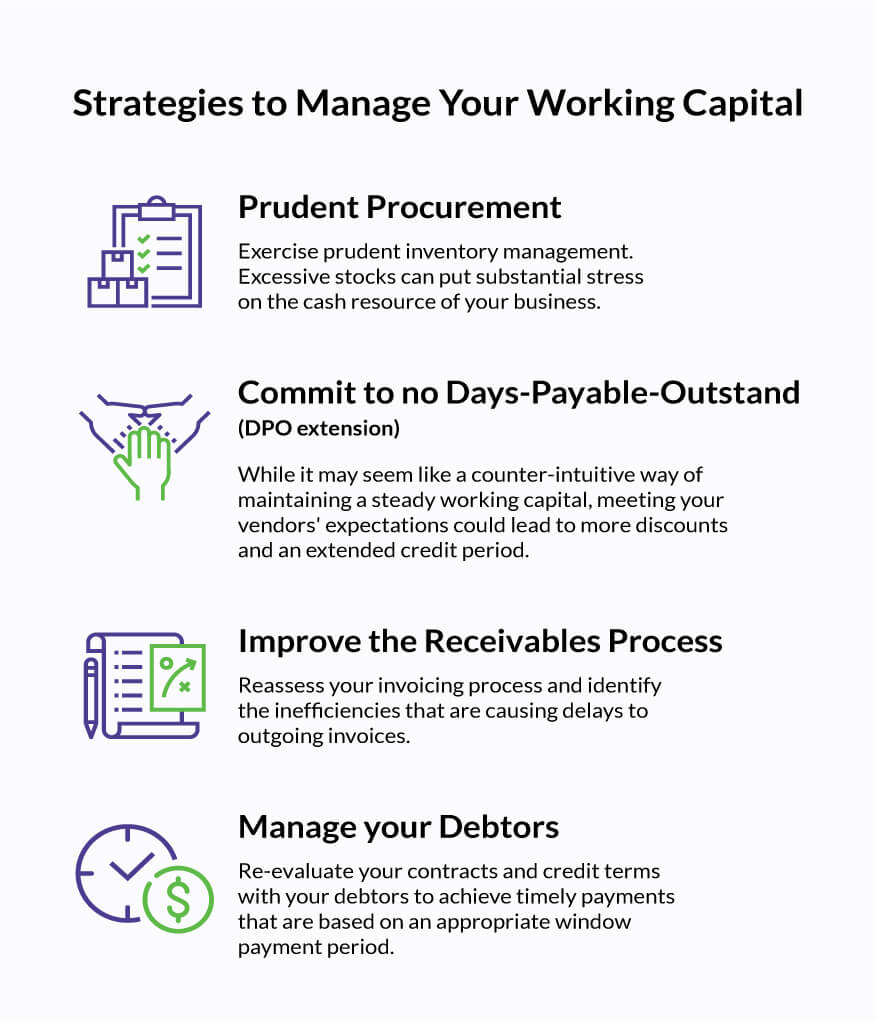The onset of the COVID-19 pandemic along with efforts to contain it has plunged much of the global economy into a recession. In April, the International Monetary Fund’s World Economic Outlook (WEO) projects global growth to shrink by 3 per cent. However, its October publication amended the projection to 4.9 per cent. The impact of the pandemic will continue into 2021, where the WEO projects global growth to be at 5.4 per cent, which is 6.5 per cent lower than the pre-COVID-19 projections of January 2020.

Looking forward, we can expect the recession to leave lasting scars despite the extraordinary efforts of governments worldwide to alleviate the situation through fiscal and monetary policy support.
During these unprecedented times, companies need to take affirmative action to mitigate risk amidst the economic downturn. Crafting recession strategies to retain or expand your customer base, learning to embark on affordable yet effective marketing or even taking this opportunity to review and better optimise business operations are all practical solutions businesses can explore. However, the immediate strategy for most companies would be to adopt cost-cutting measures.
In this article, we will share some of the most popular and effective measures companies can take to mitigate costs during an economic downturn.
Look to outsource
Outsourcing is when a company engages a third-party service provider to handle or manage a business function externally instead of choosing to manage the particular service in-house.
Of the numerous functions that exist in a company, payroll is perhaps the one that will offer the most significant benefit when outsourced during an economic downturn. By outsourcing payroll, your company can effectively improve its focus and expand its accessible talent pool, which are all essential to helping the company navigate through an economic recession. But most notably (and most beneficial during an economic downturn), outsourcing can reduce and control a company’s operating cost.
While the actual cost-savings of outsourcing HR and payroll services may vary between businesses, the most common areas where they could come from are:
- Reduced payroll employees or headcounts
- Elimination or change of existing payroll management software (often to something like a cloud-based payroll system that offers automation solution)
- HR and payroll system updates
- Employee training
- Hefty penalties that are incurred when payroll mistakes happen
Outside of payroll, some of the most popular services that companies often outsource to mitigate and manage costs are accounting, administrative services (corporate secretary) and human resources.
Look to your accountants
During an economic downturn, it becomes imperative that you have experienced accountants to help you financially navigate through this challenging landscape. Beyond their capacity for keeping financial records, accountants can interpret them and provide you with a clear and succinct evaluation of the company’s current performance and financial position that could positively influence the outcome of any business decision during a recession.
Given their unique position and objectivity, a critical and core function of accountants on mitigating costs during an economic downturn is to uncover opportunities to eliminate unnecessary expenses and save costs. In areas where it is not possible to cut costs completely, your accountant can strategically advise on how payments can be deferred to maintain a healthy cash flow during difficult periods.
In addition to cutting cost, seasoned accountants can also analyse your business trends and provide effective forecasting. Such input is critical to helping you understand the changing performance of your business and assist with realigning projections, which can help you assess the viability of your current business plan and provide insights for new alternatives should the need arise.
Look at tax relief and economic stimulus packages
In an economic downturn, it is essential to monitor tax policy changes that can aid in providing financial relief for the company and improve cashflow. During such times, it is common for banks to begin cutting their interest rates while the government actively works to put forward spending and tax packages as well as offer administrative relief by extending tax-filing deadlines. Governments across the world might even introduce tax credits and tax cuts for companies that have experienced a significant drop in revenue.
Additionally, most governments would also roll out stimulus packages as part of their plan to spur their respective economies. However, it is worthwhile to note that in the long term, these governments intend to recoup the funds that were used to finance the stimulus packages and their plans could impact the bottom line of many businesses later. A likely course of action would be adjustments made to policies and tax rates, including but not limited to Corporate Taxes and the Sales and Service Tax (SST). Therefore, we strongly advise that businesses continually revise their tax plan in response to any possible policy changes to achieve greater savings and maximising any tax benefits.
As you embark on any tax planning efforts and find yourself lacking in experience or resources to do so adequately, it is a good idea to engage a professional. In doing so, you can ensure that your tax plan is continuously revised to strategically leverage every tax benefit, maximise tax deductions, and comply with the local tax regulation and statutory requirements.
Look at better managing your working capital
An economic downturn presents several working capital challenges for businesses across industries. To stay operational, companies must look for new ways to finance their working capital. According to the Hackett Group’s 2020 Working Capital Survey, organisations have focused on the availability of corporate debt as a source of working capital for too long. While this may be a common practice, it increases the company’s exposure to unavoidable risks, such as changing customer demands and disruption to the supply chain. During an economic downturn, these potential risks to your working capital could prove detrimental to the survival of the company.
Companies need to manage their working capital during an economic downturn effectively to mitigate cost through individual strategies that address their levels of debtors, creditors, procurement and inventory, and receivables process.

Look at BoardRoom to help you through this crisis
During an economic downturn, when faced with numerous challenges, companies will naturally seek to hunker down and begin cost-cutting strategies. Such strategies are necessary, but it is also vital to note that even in crisis, there are opportunities. Companies will have to practice greater diligence and adapt to the changing landscape quickly through the adoption of forward-looking, growth-oriented plans that prepare the company for when the economy improves.
BoardRoom can help you through any recession period and prepare your business for the inevitable upturn. As a market leader in providing accounting, payroll and corporate services, our in-house team of dedicated experts can help to provide effective cost strategies regardless of your business size or needs. Our in-depth understanding and experience of economic trends will empower your business to discover and explore new opportunities.
Are you looking for a trusted partner and advisor as you weather this difficult time? We are here for you with your tax services needs. Contact our BoardRoom outsourcing experts here!



